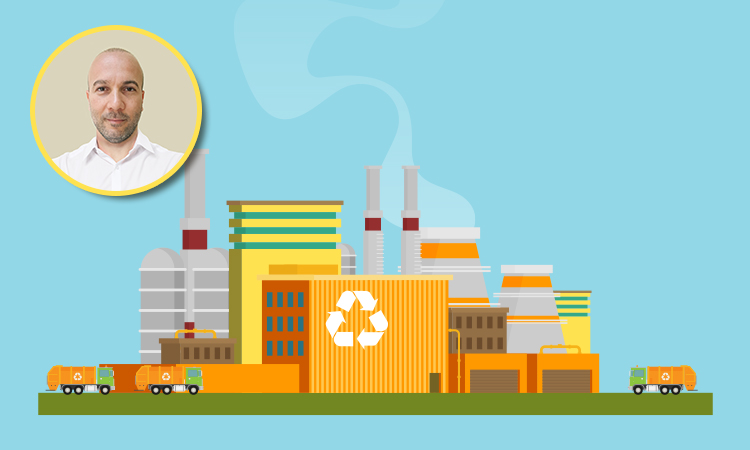Due to their high lubricating content (70% base oil, C18-C40), economic significance and increasing quantities (approximately 250,000 tons per year), waste oils have gained significant attention in recent years as an important secondary raw material source in our country.
However, due to the presence of various types of waste oils (13 01 - Waste Hydraulic Oils, 13 02 - Waste Engine, Transmission and Lubricating Oils, 13 03 - Waste Insulation and Heat Transfer Fluids), each of which causes different problems and hazards (degraded additive packages, polyaromatic hydrocarbons, metal powders and other impurities), the legal management of waste oils is environmentally critical.
Improper management of waste oils can lead to significant environmental problems, causing serious harm to humans, animals and plants. For example, the improper and illegal burning of 5 liters of waste oil can result in air pollution equivalent to more than 3 years of the air needed by one person. Additionally, every 1 liter of waste oil disposed in environment can contaminate 800,000 liters of water. On the other hand, when waste oils are collected and recycled instead of being disposed in regular storage areas, it is possible to save an average of 3.2 tons of CO2 equivalent emissions per ton of waste oil.
In this context, regulatory rules aim to ensure the proper management of waste oils, prevent their pollution of the environment and harness their high recycling potential both at the national level and across Europe, promoting sustainability. Therefore, the EU Waste Framework Directive (2008/98/EC) mandates the implementation of measures for the proper management of waste oils in accordance with the waste hierarchy.
In Türkiye, one of the main axes of the Waste Oil Regulation (Regulation No. 30985) revised in 2019 is to prioritize the re-refining of waste oils among different recovery (recovery and/or recycling) and disposal options, in line with the EU Waste Framework Directive. In this context, the effective implementation of both EU and Turkish legislation, along with the European Green Deal (2020), has accelerated the necessary steps towards a circular economy that prioritizes the re-refining of waste oils.
Generally, from 3 liters of waste oil, it is possible to obtain 2 liters of new base oil through re-refining process. In contrast, to obtain the same amount of oil through crude oil refining, approximately 140 liters of crude oil are needed. Furthermore, due to the ability to re-refine waste oils numerous times they have become an excellent example of a circular economy. As a result, the re-refining of waste oils has established a reliable and sustainable closed-loop system for hazardous waste in line with Türkiye and the EU’s circular economy goals.
The circular economy is also a promising approach towards achieving the United Nations Sustainable Development Goals (SDG). The 8th, 9th, 12th and 13th targets of the Sustainable Development Goals are directly related to waste oil re-refining facilities. It is possible to achieve rational and efficient use of resources (SDG 8, 9, 12) and prevent environmental impacts through treatment systems that reduce climate change (SDG 13). Thus, waste oil re-refining facilities will support the sustainable and reliable management of waste oils, while also aligning perfectly with modern market needs.
Taking a broader perspective, it can be observed that numerous policies and guidelines have been published for waste oils up to the present day. The European Parliament adopted a decision in February 2021 regarding the new Circular Economy Action Plan, which calls for additional measures to achieve a carbon-neutral, environmentally sustainable and reliable circular economy by 2050. These measures include stricter recycling rules and binding targets.
The Commission, aiming to keep resources in the economic cycle for as long as possible, is evaluating the most effective measures to ensure the collection of waste oil and their environmentally friendly refining. Therefore, the EU Circular Economy Action Plan identifies waste oils as one of the key product value chains in the transition to a circular economy. As a result, it is also necessary for all actors in the value chain to adapt to increasing sustainability requirements by developing the necessary infrastructure. In order to achieve the targeted objectives, it is indeed necessary to provide greater incentives (not necessarily limited to financial incentives) to re-refining facilities.













